| Award Ceremony Highlights |
|---|
* Information concerning affiliation/post/profile of the laureate and guests is current at the time he/she received the prize.
Award Ceremony Highlights: Honda Prize 2010
November 17, 2010, Imperial Hotel Tokyo
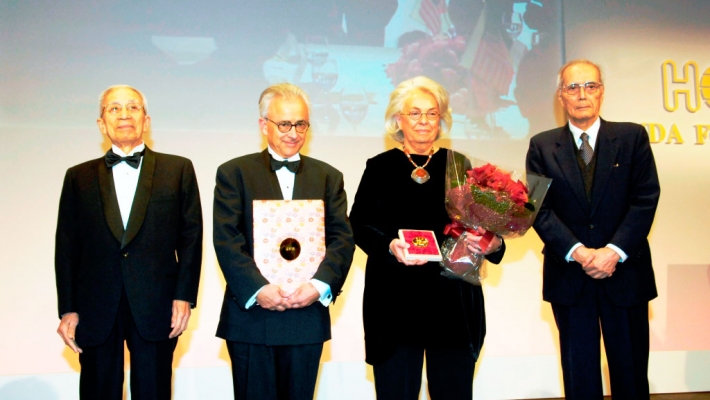
(from left to right)
Mr. Kawashima/ President of Honda Foundation, Dr. Antonio Damasio, Mrs. Hanna Damasio, Mr. Yamamuro/ Vice President of Honda Foundation
Mr. Kawashima/ President of Honda Foundation, Dr. Antonio Damasio, Mrs. Hanna Damasio, Mr. Yamamuro/ Vice President of Honda Foundation
The 31st Honda Prize ceremony was held on Wednesday, November 17, at the Imperial Hotel Tokyo, with 250 participants and guests from the Portugal Embassy, American Embassy, policy makers, scholars, researchers and media people.
This year’s laureate was Dr. Antonio Damasio, David Dornsife Professor of Neuroscience, Director of the Brain and Creativity Institute, University of Southern California, U.S.A.
This year’s laureate was Dr. Antonio Damasio, David Dornsife Professor of Neuroscience, Director of the Brain and Creativity Institute, University of Southern California, U.S.A.
Movie of The Laureate
Dr. Antonia Damasio’s Commemorative Lecture:
“The Neurobiology of Emotions: Consequences for Medicine and Culture”
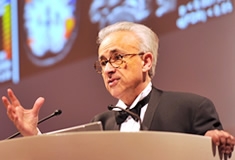
Dr. Antonio Damasio
Emotion and feeling are not the same, and it is important to make that distinction. For a long time in the history of science and thinking, they have been thought as being irrational and unwelcome. But, emotions are part of the automated management of biological value in a living organism. Many other species other than human that do not excel in cognitive abilities, having emotions is a spectacular advantage. Human have the two best mechanisms of the worlds which nature has given us. First, emotions which without any deliberation offer us a practical and rapid solution that we do not need to think through. Second, because we have consciousness, reason, knowledge and logic, we can also develop responses that are deliberated, responses that we can construct. Emotions are about actions. It’s no coincidence that the word “emotion” contains the root for “motion.” It is about action and movement that is aimed at a particular goal.
Congratulatory Addresses by Guests of Honor
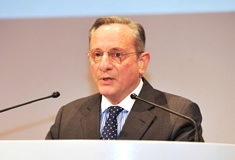
- His Excellency Mr. Joao Pedro ZanattiAmbassador of Portugal to Japan

- Mr. Bruce HowardCounselor for Science, Environment and HealthFor His Excellency Mr. John V. RoosUS Ambassador to Japan
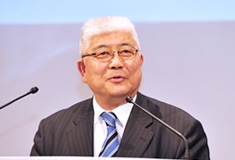
- Dr. Ichiro KanazawaMedical Supervisor for Royal Families,Imperial Household AgencyPresident, Science Council of JapanProfessor, Graduate School, InternationalUniversity of Health & Welfare
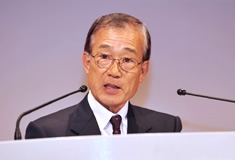
- Mr. Takeo FukuiDirector and Advisor, Honda Motor Co., Ltd.






